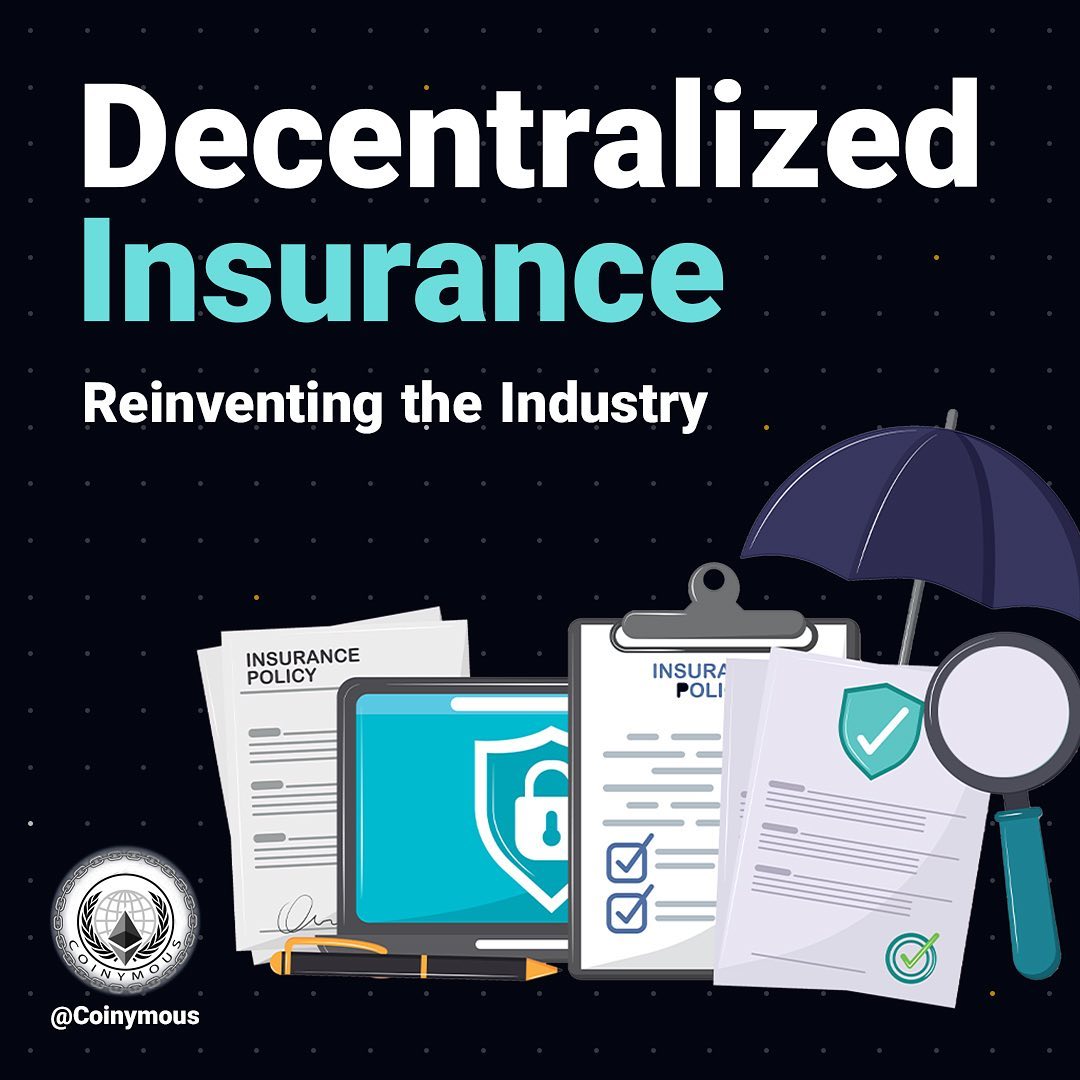Decentralized Insurance: Reinventing the Industry 🏛️
Decentralized insurance refers to a new paradigm in the insurance industry where traditional intermediaries are eliminated, and policies are governed by smart contracts on a blockchain network. This innovative approach aims to increase transparency, efficiency, and trust in the insurance sector by empowering individuals to directly interact with the system and collectively manage risks.

Introduction:
Welcome back to our blog! In today's post, we will delve into the fascinating topic of decentralized insurance and how it is revolutionizing the insurance industry. Traditional insurance has long been plagued by inefficiencies and complexities. However, with the emergence of blockchain technology and decentralized platforms, the insurance landscape is transforming into something more secure, transparent, and accessible for everyone.
The Current State of Insurance:
To understand the disruptive potential of decentralized insurance, it is crucial to first explore the limitations of the traditional insurance industry. Delays in claim settlements, high costs, lack of transparency, and a centralized decision-making structure have often left policyholders frustrated and dissatisfied. Decentralized insurance aims to address these issues and create a more customer-centric approach.
The Role of Blockchain Technology:
At the heart of decentralized insurance lies blockchain technology. The decentralized nature of blockchain allows for transparent, immutable, and secure transactions. Smart contracts, implemented on blockchain platforms such as Ethereum, enable automation of insurance processes and eliminate the need for intermediaries. This removes the possibility of manipulation and reduces administrative costs, ultimately benefiting both insurers and policyholders.
Peer-to-Peer Insurance:
One of the most promising applications of decentralized insurance is the rise of peer-to-peer (P2P) insurance. P2P insurance platforms connect individuals with similar risk profiles, allowing them to pool their resources and collectively insure one another. By eliminating traditional insurers as intermediaries, P2P insurance significantly reduces costs, offers fairer premiums, and fosters a sense of trust and community among participants.
Decentralized Governance:
Decentralized insurance platforms also bring forth the concept of decentralized governance. Decisions regarding policy rules, claim settlements, and risk assessment are made by a consensus of participants rather than being controlled by a central authority. This democratization of decision-making ensures transparency, reduces biases, and minimizes conflicts of interest, ultimately leading to more equitable policies and a greater sense of ownership among policyholders.
Increased Security and Fraud Prevention:
Blockchain technology's immutability acts as a powerful deterrent against fraud and manipulation within the insurance industry. By storing policy and claim data on a distributed ledger, decentralized insurance platforms provide transparency and accountability. Additionally, smart contracts execute and settle claims automatically based on predefined conditions, removing the need for subjective evaluations and minimizing fraudulent activities.
Potential Challenges and Future Outlook:
While decentralized insurance presents numerous advantages, challenges exist, primarily in terms of regulatory frameworks and scalability. The insurance industry is heavily regulated in most jurisdictions, and integrating decentralized insurance solutions will require adapting these regulations to the digital age. Additionally, scalability remains a concern as blockchain technology must support a high volume of transactions to cater to a global user base. Nevertheless, as the technology matures and gains wider acceptance, decentralized insurance holds immense promise for the future.
Conclusion:
Decentralized insurance stands at the forefront of reinventing the insurance industry. By leveraging blockchain technology, it offers greater transparency, efficiency, security, and cost-effectiveness. The advent of peer-to-peer insurance and decentralized governance mechanisms further enhances its potential to create a fairer and more inclusive insurance ecosystem. As the industry continues to evolve, decentralized insurance is set to play a significant role in transforming how we protect our assets, businesses, and well-being in the years to come.